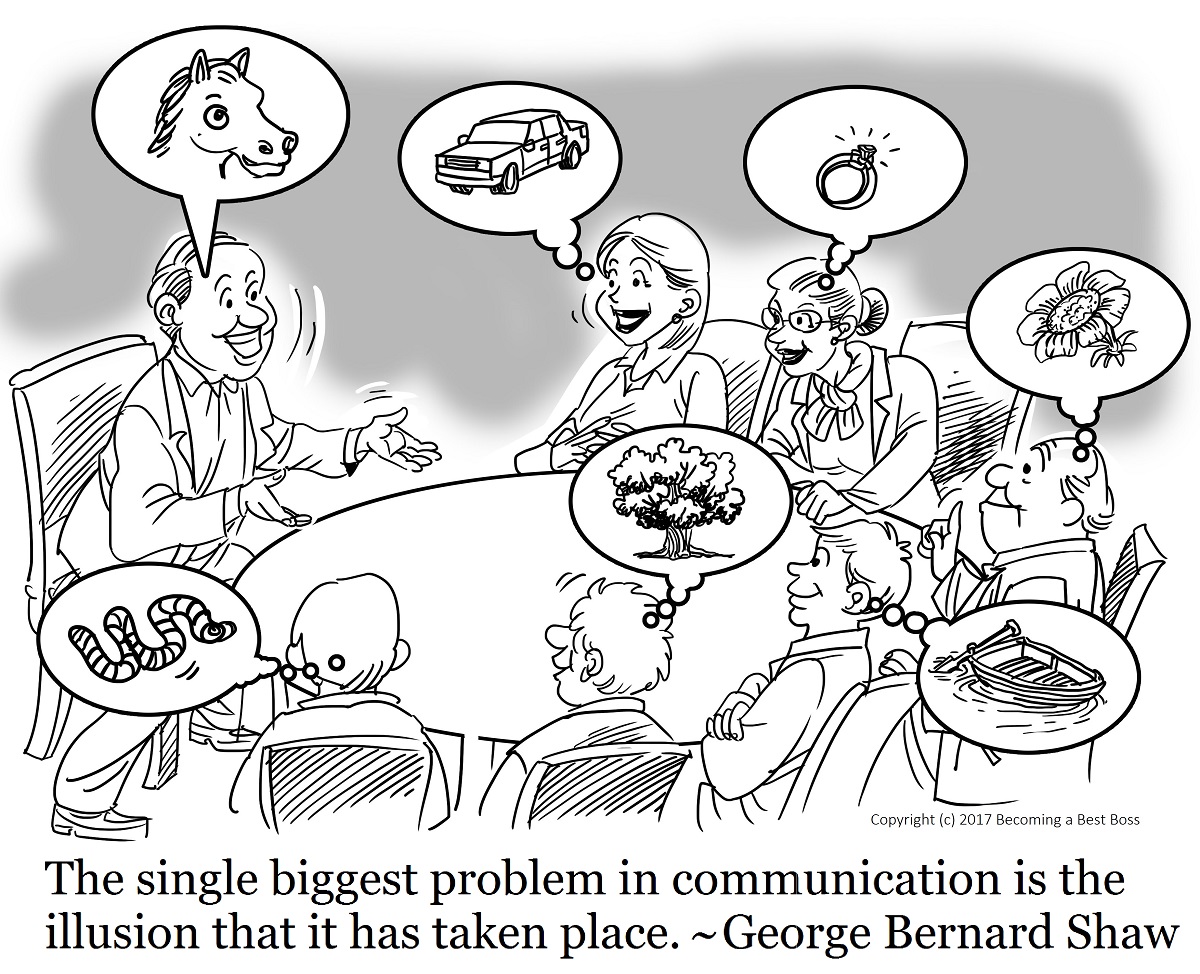How to Hold a Professional Networking Meeting with a New Acquaintance
While much of my content is aimed at senior leaders, I often get questions regarding how we can help newer managers grow their skills. This post was written with that need in mind. Feel free to share this with anyone you think might benefit from it.
Everyone knows we each need a strong professional network. Let's recap why.
A strong professional network will:
- Help you find a job if you suddenly need one - which protects your family
- Help you recruit top talent when you need to hire - which helps your team & firm
- Bring you new ideas nobody else on your team has even heard of - which keeps you mentally flexible
- Vet your ideas with a broad array of experiences - which improves your ideas and thinking
- Connect you with resources nobody else on your team can reach - which helps your team & firm
Hardly anyone does the work to create and sustain a truly strong professional network. Most of us don't know where to start.
Here's how to [1] ask for, [2] prepare for, [3] engage in, and [4] follow up on a professional networking meeting with a new acquaintance.
Ask for the Meeting
It's simple. You've met someone or been introduced to someone, and you say, "Would you be available in the next 2-3 weeks to have a 25-minute professional networking meeting to get to know one another?"
This works. It works because you've taken the initiative, you've asked them to do something they know they ought to be doing, namely building their network, and your request feels safe because you've bounded it with time -- 25 minutes. Because you took the initiative, they tend to assume you know what you're doing. This further eases their mind. It's an easy "yes" and also (this is important) it's an easy "no" as well.
The "no" is easy because you didn't ask if they were interested, you asked if they were available. It could feel rude for them to say they're not interested (even if they aren't), but we're all busy, and most folks will feel pretty comfortable saying they're just not available.
You want to make the "no" answer feel easy. They are going to get an emotional vibe from this interaction, good or bad. The more comfortable you make them, the more well-disposed towards you they're going to feel. If you made them feel pressured or they felt forced to be rude (or say a "yes" they don't want to say) then you're creating a negative vibe.
Because you made the "no" easy, if they actually are both busy and interested in meeting, they are more likely to answer, "Not in the next three weeks, but how about four weeks out? I can do Tuesday the 3rd."
Prepare for the Meeting
It shows kindness, respect, and consideration to do some preparing for a first-time 1:1 networking meeting. If they have a LinkedIn profile, read it the day before and note anything that interests you. (You can even print it, mark it up, and bring it, if that feels like your style.) By preparing, you're signaling that you think they are important and interesting. Don't make a big show out of having prepared, and don't be surprised if they haven't.
Also, be clear on what facts you want the other person to know about you. Are you looking for work actively? Just exploring career options? A professional networking meeting is about getting to know each others' strengths so we can, if we get along, ask each other for small favors in the future -- an introduction, or a second opinion on an idea, or the like. You want the other person to know your strengths. Love math and hate biology? Say so. Hoping to find a job in Europe in the next few years? Mention it.
Lastly, put together a VERY short life narrative that connects those facts. When you connect them and give a bit of backstory, you make your facts memorable. I tell people "I became a technologist soon after I got out of school, did database architecture for Oracle and IBM and some smaller firms, and after 15 years I plateaued. Then I pivoted to studying leadership, and spent the next 20 years -- up to now -- deeply trying to understand what makes a leader effective, and how a team really works. Now I mostly help technologists in management roles who need to learn how to lead. I find I'm particularly effective with neurodivergent leaders."
Don't try to be clever or funny or entertaining, unless that's natural for you. Just be candid and brief.
Engage in the Meeting
Again, keep things simple. They said "yes" or you wouldn't be meeting. Your three goals during the meeting are to:
- Create a pleasant interaction for both of you.
- Get across to them perhaps two or three things about you that will be helpful for them to know about you.
- Listen deeply to them and gather two or three things about them that will be helpful for you to know about them. (Take notes.)
To keep the conversation pleasant, follow a couple of guidelines -
- Use "yes and" to build on or respond to what the other person said, or ask for more detail, or imagine out loud what their anecdote felt like for them. This is empathic listening. For example, they say they went to the beach last weekend. I would tend to ask "Which beach?" (if it's not obvious from prior context) and "Solo trip, or with someone special, or...?" When they say they went solo, I might say "It can be so restful, to have some alone time in nature. That sounds lovely." (Only say things you believe.)
- Ask a follow-up question that invites reflection. I'll ask something like "What was the best part of the trip for you?" Again, stick with conversation patterns that are natural for you.
Since you invited the meeting, the other person might defer a little to you regarding what to talk about first. If they want to lead, let them. If they seem to want you to, have a plan for what you'll bring up. I typically use this sequence (and you can borrow it or create your own):
- "I often like to open a meeting like this with sharing something small and positive, like, what's some little good thing that's happened in your life in the past 24 hours. Would you care to try that?" (I wait for a nod or the like.) "I'll start." (Since it's my game, I should demonstrate what I mean.) "I had the most delightful cup of coffee this morning. I've been playing with making cold brew coffee concentrate, and this morning, I don't know why, it just tasted especially good." (Or whatever is true for me. I saw hummingbirds at our feeder. I got good news from a client. I woke up right before my alarm, feeling energized. Whatever.) Now ask them for theirs. As above, show interest with empathic listening and mildly curious follow-up questions. Don't grill them. This opening will take 3 to 10 minutes depending on your respective personalities and conversation styles.
- "I was thinking we could swap our backstories. You want to go first, or shall I?" (Defer to their choice.)
- When talking about you, use the above life narrative you prepared and memorized. Don't try to recite it verbatim; be conversational. Keep this under 5 minutes. Expect to spend more time listening to them.
- When listening to them, take notes. Use empathic listening and use your natural curiosity to form follow-up questions. If it feels right, ask other questions from your study of their Linked In profile.
- If your two backstories don't fill the 25 minutes, ask them where they hope to be with their careers in 5 or 10 years. Be prepared to reciprocate if they ask. (If you truly don't know, say so. That's OK.)
- Thank them for their time. If any action items have come up, recap them from your notes. For example, if you have promised to send them the title and author of a book that came up in the conversation. Don't try to book another meeting unless it seems like an obvious next step -- I usually just say "Let's touch base again in a few months -- are you OK if I reach out again by email?"
Follow up on the Meeting
Send a thank-you email, or a paper note if you truly want to stand out (and if that's your style).
Follow up on any action items that arose.
Put their name into a contact management system (a topic for another day) along with the gist of the notes you took.
Mark your calendar to email them in 3 months or whatever was agreed. Then make sure you do.
Further Reading and Listening
My top sources of guidance: Herminia Ibarra (her book Act Like a Leader, Think Like a Leader) and Mark Horstman (this podcast on networking).

 By
By


